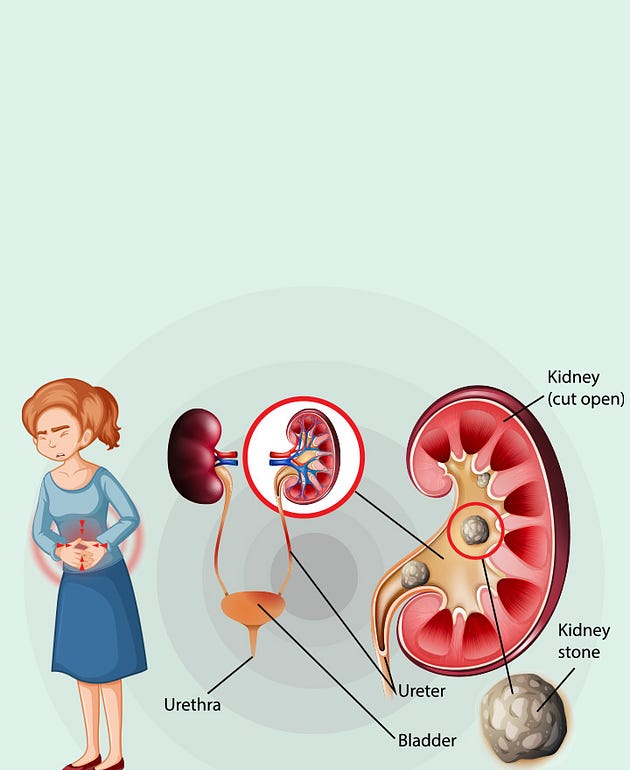Introduction:
Kidney stones, though relatively small in size, can pack a significant punch when it comes to pain and discomfort. Recognizing the symptoms of kidney stones early on is crucial for prompt diagnosis and effective treatment. In this article, we’ll delve into the common symptoms of kidney stones, helping you understand when it’s time to seek medical attention.

- Pain:
One of the hallmark symptoms of kidney stones is intense pain, often described as excruciating and debilitating. This pain typically occurs suddenly and can radiate from the back or side to the lower abdomen and groin area. The severity of the pain can vary depending on the size of the stone and its location within the urinary tract.
2. Urinary Changes:
Kidney stones can cause various changes in urination, including:
— Frequent urination: Individuals with kidney stones may feel the urge to urinate more frequently than usual.
— Painful urination: Passing urine may be accompanied by a burning sensation or discomfort, especially when a stone is lodged in the urinary tract.
— Blood in the urine (hematuria): The presence of blood in the urine, which may appear pink, red, or brownish in color, is a common indicator of kidney stones.
— Cloudy or foul-smelling urine: Kidney stones can sometimes cause changes in the appearance and odor of urine, indicating an underlying problem in the urinary tract.
3. Nausea and Vomiting:
In addition to the pain associated with kidney stones, many individuals may experience nausea and vomiting, especially if the pain is severe. These symptoms can result from the body’s natural response to intense pain or may be caused by complications such as kidney blockage or infection.
4. Fever and Chills:
In cases where kidney stones lead to urinary tract infections or other complications, fever and chills may occur. These symptoms typically indicate an underlying infection and require prompt medical attention to prevent further complications.
5. Difficulty Passing Urine:
As kidney stones move through the urinary tract, they can cause blockages that obstruct the flow of urine. This can lead to difficulty passing urine, urinary retention, or a sensation of incomplete emptying of the bladder. In severe cases, complete blockage of the urinary tract can occur, leading to a medical emergency that requires immediate intervention.
Conclusion:
Recognizing the symptoms of kidney stones is essential for early detection and treatment. If you experience severe or persistent pain, changes in urination, nausea, vomiting, fever, or chills, it’s important to consult a healthcare professional promptly. With proper diagnosis and treatment, kidney stones can be managed effectively, allowing you to find relief and prevent complications. Don’t ignore the signs — listen to your body and seek medical attention when needed.
Comments
Post a Comment